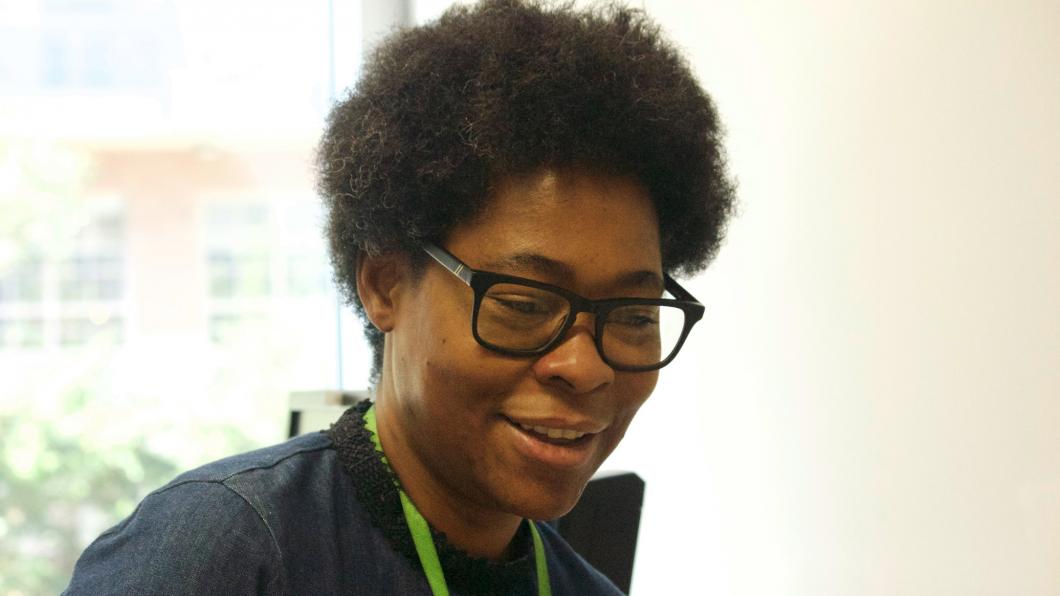
Bringing care as close as your phone
By Louise Kinross
Holland Bloorview families who live a distance from the hospital are benefiting from convenient virtual visits with clinicians.
"For continuity of care, medication management, or if a family member can't attend a feedback appointment, this is a seamless approach that addresses geographical barriers and time spent travelling," says Sharon Smile, a developmental pediatrician in our child development program. Sharon, who works with many families with children with autism, says it also eliminates stress for kids who find changes in routine, and new environments, difficult.
"Virtual care is in our strategic plan as a way to personalize pathways," she says. Over 300 visits have been done since January.
Clinicians use the Ontario Telemedicine Network to connect with families on a computer, iPad or cell phone. "It may be in a safe space in their home, or in a closed room at their work, maintaining confidentiality," Sharon says. "We can see and hear each other as if it were in person. It's just another ordinary way to talk to patients.
"For a clinician, it's important for me to see the parents' facial expressions to identify if they're understanding what I'm saying, and I think there's power in parents seeing me and hearing my voice as well." For families where English is a second language, Sharon can book an interpreter to sit beside her.
"The first thing parents say is 'Thank you,' because they appreciate that they don't have to miss a day from work, and we can schedule calls more flexibly, early in the morning or at lunch. We also do visits where other family members, like a grandmother, can sit in on the call."
Sharon says telehealth is also an essential tool in a research project she's spearheading called Learning to Eat At Home. "Between 70 to 90 per cent of children with autism have some kind of feeding challenge, and food selectivity is the most frequently reported challenge," she says. "In our research project, families bring their child in for an initial assessment. Then we create a program and deliver it through up to 12 virtual visits."
Depending on the cause of the child's issues, a Holland Bloorview behaviour therapist, or occupational therapist, or both, will teach strategies online to boost a child's food repertoire. "We may meet the family in their kitchen, or at the dining room table, or wherever the difficulty is occurring. With virtual care, we can see what's happening in the comfort of the family's home."
That's a huge improvement over accessing traditional services. "Right now we don't have a multidisciplinary feeding team available in the GTA through our academic centres, so care is fragmented," Sharon says. "Families may need to visit an occupational therapist, and a behaviour therapist, and a physician. Through telefeeding, we bring the specialists to the families when and where they need it most, in the home."
The Ontario Telemedicine Network is funded by the Canadian government.